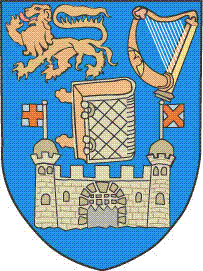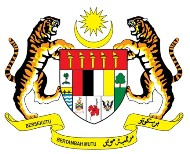By JHaZKiTaRo
Petikan dari Wikipedia:
The 100: A Ranking of the Most Influential Persons in History is a 1978 book by Michael H. Hart. It is a ranking of the 100 people who most influenced human history. Since publication the book has been hotly debated and its concept widely copied.
The book was reprinted in 1992 with several notable revisions made to the original list of 100 people and their associated rankings. Chief among these revisions was the demotion of figures associated with Communism, such as Vladimir Lenin and Mao Zedong, and the introduction of Mikhail Gorbachev. Hart took sides in the Shakespearean authorship issue and substituted Edward de Vere, 17th Earl of Oxford for William Shakespeare. Hart also substituted Niels Bohr and Henri Becquerel with Ernest Rutherford, thus correcting an error in the first edition. Henry Ford was also promoted from the "Honorary Mentions" list, replacing Pablo Picasso. Finally, some of the rankings were re-ordered, although no one listed in the top ten changed position.
What mainly surprised readers was the first person on Hart's list. Hart decided to choose Muhammad over Jesus or Moses despite the fact that Islam was not the largest religion and that it was from a distant part of the world from where he lived. Hart attributes this to the fact that Muhammad was successful in both the religious and political realms. He also writes that Muhammad's role in the development of Islam is far more influential than Jesus's collaboration in the development of Christianity. He attributes the development of Christianity to St. Paul, who played a pivotal role in the dissemination of Christianity.
In addition, Hart wrote a 'sequel' in 1999, entitled A View From The Year 3000, in which he writes from the perspective of a person from that year ranking the most influential people in history. Roughly half of those entries are fictitious people from 2000-3000, but roughly half are actual people, most of whom are taken from the 1992 edition, though many have been reranked in order.
Top 25:
01) MUHAMMAD (Prophet of Islam)
02) ISAAC NEWTON (physicist; theory of universal gravitation; laws of motion)
03) JESUS CHRIST (founder of Christianity)
04) BUDDHA (founder of Buddhism)
05) CONFUCIUS (founder of Confucianism)
06) ST PAUL (proselytizer of Christianity)
07) TS'AI LUN (inventor of paper)
08) JOHANNES GUTENBERG (developed movable type; printed Bibles)
09) CHRISTOPHER COLUMBUS (explorer; led Europe to Americas)
10) ALBERT EINSTEIN (physicist; relativity; Einsteinian physics)
11) LOUIS PASTEUR (scientist; pasteurization)
12) GALILEO GALILEI (astronomer; accurately described heliocentric solar system)
13) ARISTOTLE (influential Greek philosopher)
14) EUCLID (mathematician; Euclidian geometry)
15) MOSES (major prophet of Judaism)
16) CHARLES DARWIN (biologist; described Darwinian evolution, which had theological impact on many religions)
17) SHIH HUANG TI (Chinese emperor)
18) AUGUSTUS CAESAR (Roman Emperor)
19) NICOLAUS COPERNICUS (astronomer; taught heliocentricity)
20) ANTOINE LAURENT LAVOISIER (father of modern chemistry; philosopher; economist)
21) CONSTANTINE THE GREAT (Roman emperor who completely legalized Christianity)
22) JAMES WATT (developed steam engine)
23) MICHAEL FARADAY (physicist; chemist; discovery of magneto-electricity)
24) JAMES CLERK MAXWELL (physicist; electromagnetic spectrum)
25) MARTIN LUTHER (founder of Protestantism and Lutheranism)
Petikan dari Wikipedia:
The 100: A Ranking of the Most Influential Persons in History is a 1978 book by Michael H. Hart. It is a ranking of the 100 people who most influenced human history. Since publication the book has been hotly debated and its concept widely copied.
The book was reprinted in 1992 with several notable revisions made to the original list of 100 people and their associated rankings. Chief among these revisions was the demotion of figures associated with Communism, such as Vladimir Lenin and Mao Zedong, and the introduction of Mikhail Gorbachev. Hart took sides in the Shakespearean authorship issue and substituted Edward de Vere, 17th Earl of Oxford for William Shakespeare. Hart also substituted Niels Bohr and Henri Becquerel with Ernest Rutherford, thus correcting an error in the first edition. Henry Ford was also promoted from the "Honorary Mentions" list, replacing Pablo Picasso. Finally, some of the rankings were re-ordered, although no one listed in the top ten changed position.
What mainly surprised readers was the first person on Hart's list. Hart decided to choose Muhammad over Jesus or Moses despite the fact that Islam was not the largest religion and that it was from a distant part of the world from where he lived. Hart attributes this to the fact that Muhammad was successful in both the religious and political realms. He also writes that Muhammad's role in the development of Islam is far more influential than Jesus's collaboration in the development of Christianity. He attributes the development of Christianity to St. Paul, who played a pivotal role in the dissemination of Christianity.
In addition, Hart wrote a 'sequel' in 1999, entitled A View From The Year 3000, in which he writes from the perspective of a person from that year ranking the most influential people in history. Roughly half of those entries are fictitious people from 2000-3000, but roughly half are actual people, most of whom are taken from the 1992 edition, though many have been reranked in order.
Top 25:
01) MUHAMMAD (Prophet of Islam)
02) ISAAC NEWTON (physicist; theory of universal gravitation; laws of motion)
03) JESUS CHRIST (founder of Christianity)
04) BUDDHA (founder of Buddhism)
05) CONFUCIUS (founder of Confucianism)
06) ST PAUL (proselytizer of Christianity)
07) TS'AI LUN (inventor of paper)
08) JOHANNES GUTENBERG (developed movable type; printed Bibles)
09) CHRISTOPHER COLUMBUS (explorer; led Europe to Americas)
10) ALBERT EINSTEIN (physicist; relativity; Einsteinian physics)
11) LOUIS PASTEUR (scientist; pasteurization)
12) GALILEO GALILEI (astronomer; accurately described heliocentric solar system)
13) ARISTOTLE (influential Greek philosopher)
14) EUCLID (mathematician; Euclidian geometry)
15) MOSES (major prophet of Judaism)
16) CHARLES DARWIN (biologist; described Darwinian evolution, which had theological impact on many religions)
17) SHIH HUANG TI (Chinese emperor)
18) AUGUSTUS CAESAR (Roman Emperor)
19) NICOLAUS COPERNICUS (astronomer; taught heliocentricity)
20) ANTOINE LAURENT LAVOISIER (father of modern chemistry; philosopher; economist)
21) CONSTANTINE THE GREAT (Roman emperor who completely legalized Christianity)
22) JAMES WATT (developed steam engine)
23) MICHAEL FARADAY (physicist; chemist; discovery of magneto-electricity)
24) JAMES CLERK MAXWELL (physicist; electromagnetic spectrum)
25) MARTIN LUTHER (founder of Protestantism and Lutheranism)


















No comments:
Post a Comment